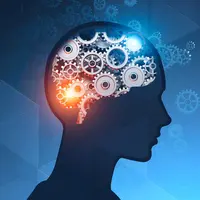Characteristics
How does the English language vary from region to region depending on whether it has come into contact with Italian, Spanish or Maltese? Which colours did medieval churchgoers see when they looked at now long-faded sculptures and how can they be digitally reconstructed? Applications of computer science such as language processing and data visualisation are opening up exciting new possibilities for researchers in other fields. Conversely, complex demands in the humanities and the social and behavioural sciences frequently require specialised solutions still rarely explored by computer scientists.
Members of all four faculties cooperate in the Digital Humanities, Social and Human Sciences research focus area towards the goal of developing innovative information technologies and testing digital solutions for research in participating disciplines. The Centre for Innovative Applications of Computer Science (ZIAI) provides an organisational framework for research in this area and promotes interdisciplinary exchange both within the university and with national and international research institutions.
Branches
Activities are conducted in five research branches:

Research in the Digital Heritage branch aims to develop information technologies specifically for scholars in the humanities. The spectrum of these activities ranges from the analysis and reconstruction of historical monuments to the development of a federation platform for multimedia research data. One unique feature of this work is the development of integrated computing solutions for the documentation of both text-based and non-textual material heritage.

The Digital Teaching and Learning branch examines how teaching and learning situations can be supported by technology and its impact on long-term learning, transfer, and inclusion outcomes. For example, apps are developed and evaluated based on evidence. This specialist field also places emphasis on didactic perspectives and investigates in particular how information technology devices can be used in teaching-learning situations or how subject-specific media concepts are best designed.

The Cognition and Interaction research branch is concerned with the study of natural and artificial cognitive systems and their interaction. Research is approached from two perspectives. On the one hand, artificial intelligence methods are used to develop cognitive models which help provide a deeper understanding of cognitive processes. On the other hand, empirical studies and insights from the fields of psychology and sociology provide a stimulus for the development of artificial cognitive systems.

What is the impact of artificial intelligence (AI) on our society, how does AI change personality, learning and teaching, social interaction, culture, work and everyday life? The Artificial Intelligence branch in the Humanities, Social and Human Sciencesresearch focus sees AI as both a research method for analysing large amounts of data and performing complex tasks in an automated way, and as a topic to explore in order to understand the significance and effects of AI and to identify and consistently develop suitable applications.

Research in the Sociotechnical Systems research branch focuses on how individuals in groups, networks, organisations and societies can, and do, use information and communication technologies, and how interactions in these social contexts can be analysed using adequate methods. These include software solutions for the organisation of interactive forms of civic participation and methods for the analysis and visualisation of social interactions.
Research Centres
Centre for Innovative Applications of Computer Science
Graduate Schools and PhD Programs
Bamberg Graduate School of Social Sciences (BAGSS)
Bamberg Graduate School of Linguistics (BAGL)
Bamberg Graduate School of Affective and Cognitive Sciences (BaGrACS)
Ph.D. Programme "Biopsychology of Pain and Emotions"
Master’s Degree Programmes
Current research projects and findings are incorporated into the University of Bamberg’s degree programmes, ensuring that our curricula reflect the most up-to-date research in this profile field. This is particularly true of the following master’s degree programmes:
Applied Computer Science| Computing in the Humanities | Digital Technologies in Heritage Conservation | Information Systems | Virtual Advanced Training Programme in Information Systems
